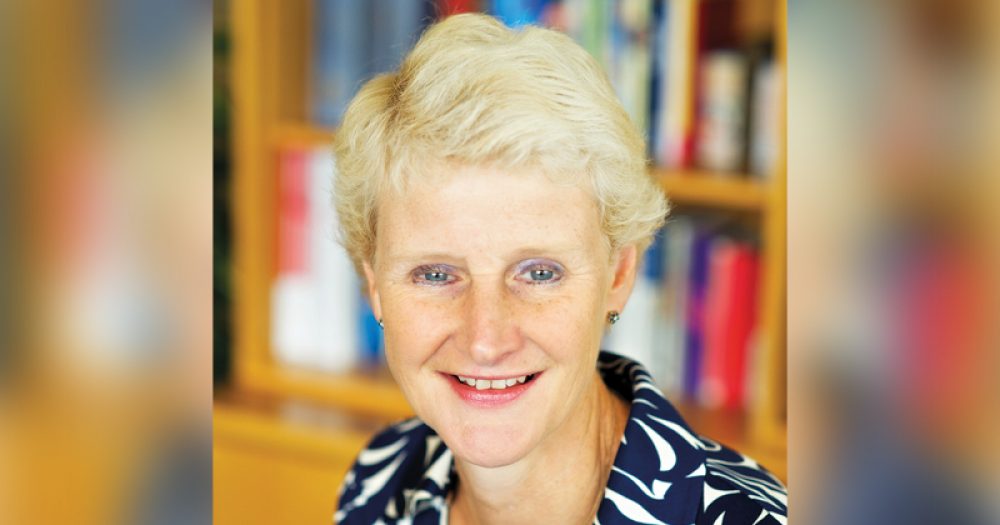The Further Education Commissioner (FEC), Shelagh Legrave, has published her first annual report. The report covers the intervention work of the commissioner and her team from August 2020 to the end of July 2021.
Here’s what you need to know.
1. Number of colleges entering intervention sharply falls, but might go up again
Four colleges entered formal intervention last academic year (July 2020-August 2021), down from 13 in the previous year. Three of those were due to tripping financial triggers and one was due to quality concerns. The colleges are not identified in the report.
The most recent intervention reports listed include Northern College, Nottingham College, City of Wolverhampton College and Shrewsbury Colleges Group.
One college had a “refreshed intervention assessment” this year due to the “extended” period of time which it has been subject to intervention measures.
However, income and cost pressures in 2022/23 are a risk on the new commissioner’s radar.
Speaking to FE Week ahead of the launch of the annual report, Shelagh Legrave said that she has heard anecdotally that colleges have under-recruited 16-19 year olds this year “because they’ve stayed on at school.”
“I think the challenge is going to come in 2022/23, when income will be down” Legrave said, adding “there are huge cost pressures on colleges this year. You’ve also got the national insurance increase and you’ve got inflation running significantly higher with no increase in funding rates. It’s going to be tough.”
2. More colleges exited intervention
Ten colleges had their intervention status lifted, up from five in the previous reporting year.
Of the ten, six exited due to improvements in performance.
FE Week investigated the improvement journeys of West Nottinghamshire College, Lancaster and Morecombe College and Warrington and Vale College earlier this year.
Two colleges exited due to structural change and two because of education administration.
As of the end of July 2021, there were 22 colleges in formal intervention in total.
3. FEC-backed mergers continued
The year also saw the completion of five FEC-backed structural reviews, detailed in the annual report. These include college mergers such as East Riding College joining TEC Partnership in August 2020, Cheadle and Marple Sixth Form College merging with Trafford College in May 2021, and Highbury College merging with Portsmouth College, forming City of Portsmouth College, in July 2021.
4. Diagnostics double
During the 2020/21 year, 25 diagnostic assessments took place which is more than double the number that took place last year (11).
These assessments, usually conducted over two-days by a team of deputy FE commissioners and FE advisers, involve discussions with senior executive staff, governors, staff, students and stakeholders and are designed to give an objective view about a college’s financial and/or quality plans.
Plans can either be endorsed by the commissioner, or there will be recommendations for changes and follow-up visits. Only two college plans received immediate endorsement.
In “exceptional circumstances”, a diagnostic visit can lead to formal intervention if the commissioner’s team finds “significant risk”.
One such escalation took place this year.
Northern College received a diagnostic assessment in February 2021 due to financial health concerns and received an intervention visit a month later. A structure and prospects appraisal of the college was ordered and, as FE Week reported in August, the college retained its independence having fought off a potentially terminal ESFA clawback.
The findings and outcomes of diagnostic assessments are not published.
5. National leaders are keeping busy
Teams of serving college leaders and governance experts, the ‘national leaders of further education’ and ‘national leaders of governance’, supported 40 colleges this year, according to the annual report. This is down from 50 in the previous year.
The national leaders’ programme, as well as the wider FEC team of deputy commissioners and advisers, have been criticised for not having any non-white members within their ranks.
In an exclusive interview with FE Week earlier this year, Shelagh Legrave said this was “reflective of the small number of BAME leaders in the sector” adding “I will certainly work with everybody to try and ensure that there is a greater diversity.”
Applications are currently open for new national leaders of further education and national leaders of governance. Applications close on 31 December 2021.
6. ‘More resources’ might be needed in the future
Since assuming office this October, Legrave has talked about reshaping the further education commissioner role in to one that more actively supports colleges. This already includes a number of new ‘active support’ measures including allowing any college to request a diagnostic assessment, a new ‘curriculum efficiency and financial sustainability’ programme and publishing best practice management accounts.
According to the annual report, this could go further in the near future, with the commissioner gaining additional responsibilities through funding and accountability reforms.
It will be the FEC’s responsibility to support colleges that are found to not be delivering local skills needs and that underperforming on the new ‘skills measure’ which is currently under consultation.
Asked whether these new responsibilities will trigger a change in the expertise required within the FEC team, Legrave told FE Week that “as we extend active support to more people, we will need more resource” but added “we haven’t been given a budget yet for 22/23.”









Do you actually saying anything that Is insightful, or just repeat what is said with a inflammatory angle?